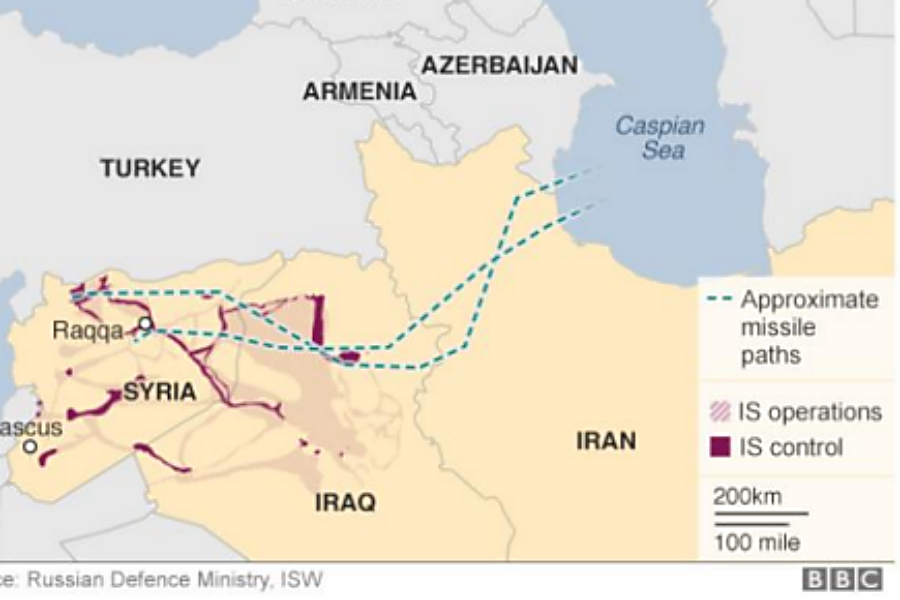Why this airline won't fly over Iran or Caspian Sea
Loading...
| Hong Kong
Hong Kong airline Cathay Pacific said Wednesday it has stopped flying over Iran and the Caspian Sea following an air safety agency warning about Russian missiles fired at Syria.
The airline's decision to reroute flights comes after Russia stepped up its military campaign against Islamic State group fighters in Syria. It started firing cruise missiles from its military warships in the Caspian Sea on Sept. 30.
"In view of the situation in the region, Cathay Pacific suspended all flights over Iran and Caspian Sea since last Thursday until further notice," the airline said in a statement. "We continue to monitor and review the situation on a daily basis."
The European Aviation Safety Agency issued a safety bulletin to airlines last week about cruise missiles targeted at Syrian rebels fired by Russian warships in the Caspian Sea. It said the missiles must cross Iran and Iraq below flight routes used by commercial aircraft.
Cathay added that it has had a long-term policy of not overflying Iraq, Afghanistan, Ukraine and Syria.
The agency said it was not making specific recommendations with its bulletin, which was issued to inform airspace users about the potential hazard. Air France said earlier this week it was taking special measures regarding overflying Iran and the Caspian Sea following the agency's warning.
Airlines are more cautious about flying over conflict zones since the downing of a Malaysia Airlines Boeing 777 last year amid a conflict between Russia-backed separatists and Ukrainian government forces. Two-thirds of the 298 people who died were Dutch and a Dutch Safety Board report released this week said the jet was destroyed by a Russian-made Buk surface-to-air missile fired from an area controlled by Russia-backed separatist rebels.
The Dutch board said the plane should never have been flying there as Ukraine should have closed its airspace to civil aviation, adding that nobody gave a thought to the dangers to passenger planes.
Russia has appealed to the International Civil Aviation Organization to open a new probe into the downing of Malaysia Airlines Flight 17 , the chief of the Russian aviation agency said Wednesday.
The Boeing 777 crashed on July 17, 2014, in the middle of a military conflict between Russia-backed separatists and Ukrainian government forces.
The 15-month Dutch probe did not explicitly say who had fired the missile, but it identified an area of 320 square kilometers (120 square miles) from where it said the launch must have taken place. All of the land was in the hands of pro-Russian separatists fighting Ukrainian forces at the time of the disaster, according to daily maps of fighting released by the Ukrainian National Security Council.
Russia and the rebels insist that if the plane was destroyed by a missile, it must have been fired by the Ukrainian military.
"The Russian commission categorically disagrees with the conclusions of the final report. They are fundamentally wrong, the lack of logic there is beyond comparison," Oleg Storchevoi, deputy chief of the Russian Aviation Agency, said in a televised news conference on Wednesday. "I had a feeling that the commission was cherry-picking the evidence to suit a theory they had chosen."







